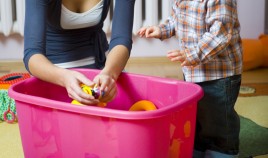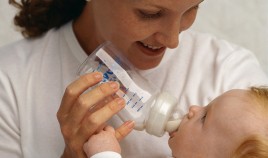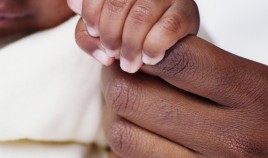The Importance of Early Attachment Relationships on Babies and Young Children
Many, if not all parents worry about leaving their children for the first time at nursery or at a child-minder. Obviously, it is paramount that you choose the right environment for your child and one which you feel absolutely comfortable with. This should be somewhere recommended and with a strong Ofsted report and where you can visit and observe children in the setting. This will give you the strongest feel for where is best for your child. However, there is more to it than just the area, setting, environment and children – it is very much about those who will be caring for your child.
I absolutely do not agree with moving young children and babies from pillar to post. Once you have found the best nursery for you and your little one, unless you make an error in judgement, it is important for your child to experience continuity and be comfortable for a good few years before moving on. This is because children form attachments. I am sure you are all aware of this but are you aware of the psychological and clinical studies/reports and observations over the past 50 years that have been made which support this statement?
The importance of early attachment relationships do impact and shape a child’s personal development. These attachments can have a dramatic effect in initiating the positive self in a child and will influence how your child then relates to others as well as their own view of themselves. I am not going to quote you numerous theorists and psychologists work but I will quote John Bolby who says “quality of attachment to the caregiver has profound implications for the child’s feelings of security and capacity to form trusting relationships”. Bearing this in mind, it is imperative that it is the carers you look at and the way they are with your children when selecting a nursery. Plus, remember that in turn, separating a child from those who they have formed attachments with can impact.
Obviously at some point a child has to move on, but there is a reason that there are pre-schools up to the age of 3,4 and 5 – it takes you up to the time when a child is more emotionally stable and confident enough to move to a new environment. Constant movement can disrupt a child’s trust of others – they may find it hard to form a strong bond as they are somewhere, sub consciously, waiting for the moment of separation which in a young child (and indeed adults) is very hard to come to terms with and can aggravate behaviour.
Children do develop deep ties with their carers and this is proven in their smiles, gurgles, laughter and other gestures from when very tiny. They use these signals to respond and interact and are encouraging their caregiver (parents or others) to provide affection.
I am not about to make a sweeping statement, but casual relationships, particularly lack of maternal care in early years has generated evidence to say that there is a link to later mental disturbance. Yes, this is challenged by other psychiatrists but the fact is; there have been numerous studies and much evidence pointing to this. Even more reason to make sure your child is forming the right attachments and for good periods of time, this prevents the feeling of “abandonment”.
It has been discovered that children with behaviour problems had not had meaningful early life attachment relationships which curbed them having empathy and identifying with others. Furthermore, if early attachment is not apparent within a year it becomes difficult for a toddler to become secure and to bond and interact on a social level.
Other studies prove that infants who are looked after by positive non-maternal caregivers should develop into healthy competent children who can have good relationships with their peers. Children respond well to those with a soft tone, who they feel nurtured and safe with and intimacy builds trust in children. Once you have found the best setting, it is the carers to look at and then when you have found the right carers, bear in mind the capabilities of the setting and how long they will be able to care for your child. Many nurseries (such as my own) do care and teach up to entry to primary school – these are good, strong environments when coupled with the very best in care giving as your child experiences intimacy, continuity and forms solid attachments therefore preparing them for the next step.
You are looking for:
– High Quality childcare
– Good role models in staff
– Carers who empathise with children
– A setting to take children up to primary school for strong continuity
The Early Years Foundation Principles state “These emotional bonds that children develop with their parents and other caregivers are crucial for their personal, social and emotional development”
For more information on attachment please see my new E Book which you can download from my website here www.shannonchildcare.co.uk



